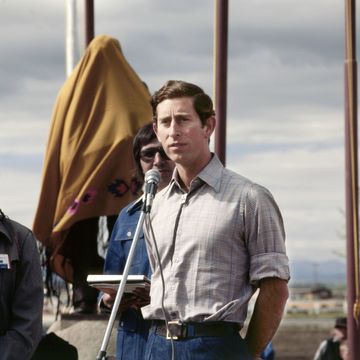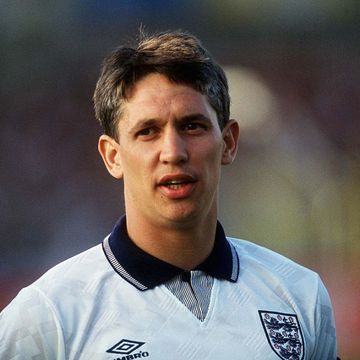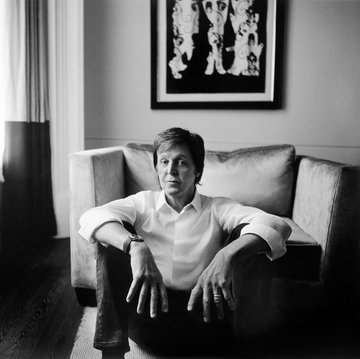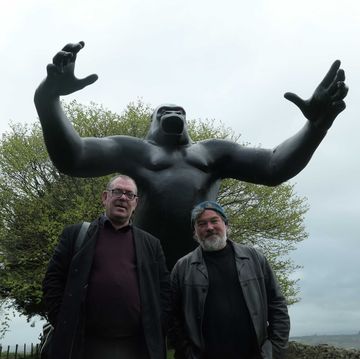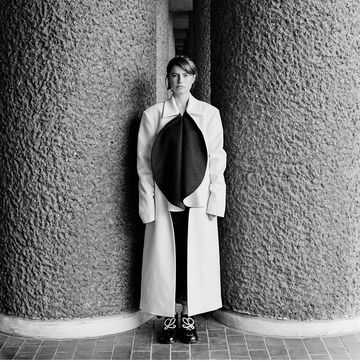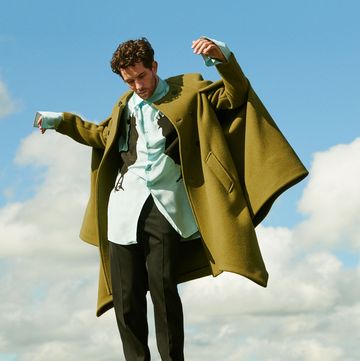This time last year, British tennis player Marcus Willis (with a then world ranking of 772) had a brief, brilliant moment of glory. He played Roger Federer on Centre Court in the second round at Wimbledon. (He lost, 6–0 6–3 6–4). Few watching had heard of him, fewer still remember his name now. But Willis has been a professional for 16 years, slogging his way around the sport's ignored lower echelons, scratching out a living. What makes him do it? Why doesn't he throw in his racket? What does his wife say? And can he ever repeat that fleeting flirtation with the big time?
On a cold Tuesday morning in February, I drove to a leisure centre outside Shrewsbury to watch Marcus Willis, Britain's eighth best tennis player and the world number 397, play Ronan Joncour, a 20-year-old Frenchman ranked almost 350 places below him. The pair were competing in the opening game of a $15,000 ITF Futures event, and, by 10.30am, a crowd had gathered. This was unusual for a first-round tie at Shrewsbury. Few people had turned up to the equivalent contest last year. Even fewer had bothered the year before. "It's always quite busy for the final," Alvin Ward, the club's general manager, told me. But a first-round match on a weekday?
Willis, 26, had arrived an hour earlier with his wife, Jenny, who was eight months pregnant. They sat at a table in the club bar, drinking cappuccinos. Willis wore a black cap and various shades of fluorescent, and every so often a passer-by would notice him and hesitate, wondering whether or not to intrude before a match or to wait until afterwards. The closer it got to game time, the more passers-by stalled before moving past him. Heads turned. Eyes lingered. At a nearby table, a man tugged at the elbow of his wife's jumper and lifted his eyebrows in Willis's direction. The move was meant to be inconspicuous, but was not. Willis stood up, said a brief goodbye to Jenny, and walked off to stretch.
Not that he minded the attention. Neither was it unusual. A year ago, maybe, when his stock was low. But then something curious happened. In June 2016, against stacked odds, Willis snuck into the qualifying rounds of Wimbledon, his home Grand Slam. Then he made it into the draw proper, won his first round, played Roger Federer in the second — on Centre Court! — and, to everyone's great surprise (apart, maybe, from his own), didn't do too badly, despite staggering differences in quality and experience. Willis lost the match but won at pretty much everything else. He received £50,000 in prize money — over £49,000 more than he'd earned so far that year. He trended on Twitter. He popped up in Hello!, twice, with Jenny, on both occasions for a fee. He appeared on the back pages of every major British newspaper and sometimes the front. Editorial writers billed him as an antidote to Brexit. Six days before the Federer game, just over half of Britain had voted to leave Europe. Such was the extent of positive public interest, you wondered whether Willis might inadvertently repair a despondent nation's colossal political divide.
He's been an object of affection ever since. People recognise him. Fans request his autograph. (He will sign anything.) Strangers actually approach him on the street. And then the cameras appear. "Even in America!" he told me, in disbelief. Even in America they ask for selfies.
And in Shrewsbury, too. As Willis and Joncour began a carefully choreographed, impeccably polite warm-up — forehands to backhands, lobs to overheads — spectators vied for position on a first-floor balcony, phones out, cameras ready. Most were locals; recreational club members avoiding the office. But others had made not inconsiderable journeys specifically to offer Willis encouragement. One middle-aged couple had arrived from a town in Berkshire, 150 miles away, and planned to remain in Shrewsbury for as long as Willis remained in the tournament. (Willis is Berkshire-born and the couple were supporting "a local boy," they said.) I know semi-serious tennis fans who'd think twice about driving 150 miles to watch peak-career Federer. Even if the event at which he was playing was as informal, and entirely free, as Shrewsbury, and peak-career Federer as perfectly penetrable as Willis.
Which makes all the attention seem a bit odd. And then you see him on court. Willis is not among tennis's exceptional athletes. He does not have Federer's grace, Murray's grit or Djokovic's astonishing resilience. He is not explosive. Neither does he contain the power to subscribe to the monotony of baseline tennis. He does have what pundits might describe as "weapons": an accurate 130mph serve, a hefty forehand. But they do not always fire. The crux of the Willis game is guile. He is impulsive, instinctive and surprisingly game-savvy. Basically, he mixes it up. Slices. Lobs. Drop shots. Good hands. Slow strokes that sap rhythm, others that startle with speed. Often they are combined within one rally and distributed with a mischievous smile. It is not razzmatazz (see the enigmatic Australian Nick Kyrgios), but it is entertaining. Variety is Willis's single most important asset and his most beguiling. He is a superstar of the tennis stroke medley.
And the nub? He delivers it all with a languor more closely associated with amateur participation than elite competition, which gives him the air of a perennial underdog, even when he's odds-on to win a match. Against Joncour, Willis did not have a game plan — he prefers "not to analyse too much" — and he regularly appeared more interested in events happening off-court than those occurring on it. He has by most measures an easy-going playing style, which can make him appear indifferent to results. (He is not.) But it is also what makes him so easy to root for, what made crowds swoon at Wimbledon, what brought so many people to Shrewsbury, in the cold, on a Tuesday. Here is a player with no fathomable playing habits who appears on court less like an untouchable sports brand than an approachable new friend. As the game began, crowd support evolved from polite applause to unbridled cheers, particularly after exciting or unpredictable rallies. Willis can incite in spectators an unreasonable desire to vocalise.
For Joncour, a baseline power hitter who relies on pattern and tends towards the erratic, the variety in pace, spin and direction of Willis's groundstrokes (and, perhaps, the partisan support) was overwhelming. Willis won in straight sets, barely challenged. As he ambled off court he looked up at Jenny, briefly clenched his fist, and smiled broadly. Jenny beamed back. So, too, did the rest of the crowd.
I first noticed Willis last June, on television, as he dismantled the 26-year-old Lithuanian right-hander Ričardas Berankis in the Wimbledon first round. Willis's win was peculiar. For starters, the game was a rankings mismatch. Willis came into the tournament toiling at number 772 in the world. Berankis, then the world number 54, was on the cusp of breaking into the game's elite. A former junior world number one, he had over 50 wins on the men's ATP Tour and, significantly, 10 at Grand Slams, a level at which Willis had never played. And Berankis actually looked like a tennis player: lithe, muscular, focused. Willis carried himself like a local club pro, which, to a degree, he was; coaching was helping him fund a career. He walked on court in awe and noticeably pudgy. Willis has previously described himself as "a bit of a fatboy". (Before the Berankis tie, a YouTube clip of Willis eating a chocolate bar between games at a 2014 tournament began to notch views. One user suggested he become the face of Snickers.) When spectators at Wimbledon got their first look, they saw a handsome, baby-faced Brit with love handles.
It was no small wonder that Willis was even there: a last-minute withdrawal had given him entry into the event's qualifying rounds. (He was informed the night before.) So while players admitted to the competition's first round on rankings merit rested, Willis played six gruelling knock-out games, three against Brits, then three more against international players who were all then, or have since become, top-100 pros. Every morning before a game he would check out of his hotel for fear of being left with a bill for an overnight he wouldn't need. Willis had planned to return to Warwick, where he and Jenny live, as soon as he lost. Every time he won, he got a lift to his hotel and checked back in.
Willis's first-round game against Berankis, then, was his seventh of the tournament, the Federer match his eighth. To onlookers, both games seemed beyond him. But Willis had been playing well on a circuit in France, and, when he beat Berankis — in straight sets — he believed that, aged 25, he'd finally discovered his level. The Federer loss wasn't unexpected, but still it was disappointing. "Genuinely I thought I could win," Willis told me in Shrewsbury. "Thought I deserved a set."
I did, too. In moments, Willis shone. One particular shot, a delicate lob that seemed out until the moment it dropped in, played on BBC highlight reels throughout the tournament. (Federer smiled at that one, although his look also seemed to warn Willis against trying anything like it again.) In the third set, he appeared more like a top-100 contestant than a first-time qualifier, but by that point the game was over. At match point, Willis received a standing ovation and became teary. "You look over at your family and friends," he said, "and realise it's all come to an end."
I'd come to Shrewsbury to see what had happened next. Throughout Wimbledon, Willis was consistent in interviews when asked about his plans for the future. The intention now, he said, was to use Wimbledon as a springboard. It was time to finally realise his potential. To break into the game's top 100. To play the Slams. To regularly reach the level at which he knows he is capable of competing. It appeared, in moments, like he was directing answers to himself: self-encouragement, caught on camera. "There's life after Wimbledon," he told reporters on exit. "I want more."
More has since been difficult to attain. Willis won a $10,000 Futures tournament in Kuwait in November, but injury prevented competitions elsewhere. In January, he entered a Futures event in Glasgow and crashed out of the second round against a player ranked 691 in the world. The following week he played in Tipton, in the West Midlands, where he made the semi-finals. Shrewsbury was his third competition of the year and, in a way, a must-win lest ranking suffer or, perhaps worse, confidence waver.
The Futures circuit is the lowest of three rungs of professional tennis and in many ways its most challenging. It is where young players get their start — it is a launchpad to the Challenger Tour and then the ATP Tour proper — and not-quite-good-enough older players linger. In terms of glamour, the differences between Futures tournaments and the ATP Tour are vast. An example: in Shrewsbury, players loitered in the centre's communal areas before and after games as there was nowhere else for them to go. (Imagine being able to sidle up to Andy Murray at a Wimbledon café while he warms up for a crunch semi-final?) Another example: Futures events take place in towns like Shrewsbury.
Players on the Futures circuit share one great aspiration: to make the ATP Tour, which means, in most cases, breaking into the world's top 100, a task that is notoriously tough. The circuit is a heavy-loaded spin cycle from which it is nearly impossible to escape. Willis is among hundreds of exceptionally talented, not-quite-world-class athletes who scrap out careers in regional competitions. There is little glitz and limited reward. Players are experienced but temporarily inconsistent, or terrific but returning from injury, or wildly talented but young and underestimated, or plain not good enough to compete at a higher level. Form is variable. Outcomes are difficult to predict. "You put a top-100 player in this competition and he'll win," Willis said of Shrewsbury. "Maybe."
Willis is mindful of tournament inconstancy, and he approaches Futures events with caution. On Wednesday morning, half-an-hour before his second round match, I found him and Jenny in the leisure centre bar. Willis was due to play an American, John Lamble, seeded 811 in the world. On paper the match was a walkover, but, given the unpredictability of the tournament, Willis was not confident. He muttered a line he would repeat to me every morning. "I could lose today," he said, "or I could win the whole thing."
Willis went to warm up, leaving Jenny and me alone. While Willis is preternaturally calm, Jenny is not. Games and the moments before them are, for her, heightened emotional episodes. I mentioned how impressive it is that Willis remains so relaxed before a match given the potential consequences. If Lamble were to win today, Willis would return to Warwick with no ranking points and no prize money. A stone-cold net loss.
"It works for him," she said, before issuing a note of caution. "Some people mistake the calm for a lack of focus, and they could not be more wrong. He is ultra-competitive. The calm is his way of dealing with it, of controlling it." It is a conscious state, she said. "A way to channel emotion."
Like Willis, Jenny never knows how he's going to do at a tournament. He could be hitting really well, she told me, and lose. Or the opposite could happen. Then, apropos of nothing, she said: "You know people bet on these games?"
I did not. Jenny explained. There are speculative sorts, she said, who gamble on the outcomes of Futures ties. The rub? Tennis's third tier is relatively unchartered, so punters rely on tournament seedings and ATP rankings, which are at this level as good as meaningless as tips, and do not take into account variables such as form and injury, information that is more difficult to attain. People lose money. Then they get angry.
"When players that are supposed to win actually lose," Jenny said, "those players get hate mail. Facebook inboxes fill up with messages. And it's not nice stuff: 'I hope your mum dies of cancer'; 'I hope your wife has a still birth.'" She paused, shrugged with resignation, then said: "Ask Marcus to show you."
I asked Marcus to show me. I'd found him back in the bar. He had just outfought the American, John Lamble, winning his second round tie in straight sets, and he was dissecting the game's statistics on an app, a post-win habit. Between sips of cappuccino, he logged in to Facebook and rifled through his inbox. Before long he landed on one message, an astonishingly derogatory one-sentence zinger, to which he had replied. That Willis responded is unusual, he told me, but sometimes he can't help himself, especially when a message is particularly caustic. (He asked me not to share his reply verbatim. I can confirm it began politely before descending quickly into a dirty heap of abusive barbs.)
Willis's Wimbledon success has made him in many ways a target. The position has positive and negative associations. It means more media attention. It also means becoming a victim of slight. "Your life just changes," he said. "Done. Just like that. Part of me is like, 'This is pretty cool.' The other part is like, 'I'm just a regular person.' But whatever. You just get on with it."
For the casual tennis fan, Willis's Wimbledon run was a happy occurrence. But some that knew him questioned, with a note of disappointment, why he hadn't broken through sooner. It felt at times as though he was being blamed for having allowed significant success to elude him. In closed circles, it was suggested he'd squandered early promise.
Willis started playing tennis aged nine and became very good very quickly. By 14 he was training 20 hours a week and winning boys' tournaments. At 17 he became the British junior number one and the junior world number 15, and soon he was taken under the stewardship of British tennis's governing body, the Lawn Tennis Association, which provided him with a new coach and, against his family's wishes, encouraged him to begin playing men's competitions. It was not an entirely successful transition; the differences in quality between the men's tour and junior circuits are vast. Willis, who until that point had enjoyed the game, stopped enjoying it. His focus wavered. His interest in practical jokes, a forte outside tennis, increased. In January 2008, he was sent home from the junior Australian Open for attending a practice session without his rackets. Within a year, the LTA had stopped calling.
Roger Draper, the incumbent LTA chief executive, called the Australian Open debacle "frustrating, because he's a really talented player," before going on to tell journalists of his plans to shake up a culture of indolence among British juniors. "Coming to the Slams just reinforces it," he told reporters. "You see the Slovaks and the Croats and the Serbs and they work hard and have the right attitude. You don't see them missing training and leaving their rackets at the hotel."
Willis did forget his rackets, he told me, but the incident wasn't as cut and dried as the LTA made out. And, while he wasn't the only junior involved in camp gags, he was the only player to be disciplined. He blames the organisation for misinterpreting his attitude as a lack of commitment, and for failing to understand that a more light-hearted training regime might also be effective. He's still bitter about it all. "You get to a point where the people around you are saying that you're not going to do it," he said, "and you start to believe it a bit, too."
Willis stopped playing for a while. He thought about giving up. A couple of months after the Australian Open his dad took over as coach and the pair moved forward. Three years ago, Willis reached number 322 in the world rankings, but he's been toiling ever since. On more than one occasion he has questioned whether he'd ever make it. That is in no small part because maintaining a low-ranking tennis career is so difficult to manage financially. Willis made $1,300 in Kuwait, an event he won (Futures circuit purses are paid in dollars). He earned $176.25 in Glasgow and $720 in Tipton. For reaching the third round at Shrewsbury he was guaranteed $300 (the tournament winner would receive $1,950). That's less than a $2,500 pay-out across four months. Considering professional outlays — travel, accommodation, food, coaching, fitness sessions — the financial returns are paltry. I asked Willis how he manages it and he shrugged.
"Imagine Glasgow," he said. "In Glasgow, you pick up [the equivalent of] £150 for losing in the second round and you've spent that on the train fare. And you've got three nights in a hotel, £70 per night, and you've got to eat, and you've got to get your strings done — £13 each time. So you're at a financial loss. And that's at an event in your own country."
He looked up and around the room and nodded in the direction of the European players sitting in the bar. "Imagine you've got a £400 flight on top of that," he said, "and you're there for three weeks because you don't travel for one event, you go on a three-week tour. You're already a grand down. You break even by making a semi, maybe, because you get £500 for making a semi now, but they tax you abroad — 30 per cent of your prize money. Gone. You're still down. You're coming home at a loss. So how do you then dip into that pot, that you're already down from, to go again for another three weeks? It's almost impossible."
When he isn't playing in a tournament, Willis coaches locals at a Warwickshire club near to his home (a four-bedroom rental on the town fringe), which allows him to earn something like a salary. He has said yes to modelling jobs, which also help. So, too, do donations from sponsors — wealthy fans from whom he receives £5,000 or £10,000 a year in exchange for an appearance at a corporate golf event. Other players depend on similar transactions. Often the wealthy fans are mum and dad, but familial support can become a bane, and the money runs out. There is more than a little sacrifice. "A lot of people don't know the underworld of tennis," John Lamble told me, referring to the Futures circuit. "Out here we're grinding."
Over the course of the week, Willis and Jenny had told me of their plans to move to Florida when the tennis career ends. In Florida, Willis can double what he makes in the UK as a coach. And Jenny, a dentist, could double her salary, too. They know someone with a practice. They already have an in. In many ways, life would be easier.
Which makes you question the decision not to end it all right now. Why continue to struggle to break even? Why toil as a good athlete, never a great one? "I still think I'm good enough," Willis told me in an earlier meeting. "And I've proved I can compete with the best player of all time."
He was right, he had. But there was more than that. The Wimbledon run had inspired faith and conviction. There was self-belief. There was hope! "And if I ever lost that belief I'd leave tomorrow," he said. "Because what's the point?"
A couple of days later, I met Willis and Jenny in the leisure centre bar again. It was Saturday, final day. Since the Lamble win, Willis had beaten a Belgian, Yannick Vandenbulcke, and a Slovakian, Filip Horanský, a former world junior number one. He had yet to drop a set in the tournament, but neither had his opponent, Oscar Otte, a 6ft 5ins German ranked 474 in the world. Willis did not appear confident, although by now his attitude seemed disingenuous. "I'm the underdog," he said, despite his superior ranking. Then, as he is apt to do, he wandered off for a coffee.
Jenny appeared nervous. The closer Willis gets to a final, the more superstitious she gets. In her lap she held a bobble hat she believed would bring good luck, and in her bag she stored an apple she had meant to eat during Willis's first game in Shrewsbury but had forgotten. It was now bruised and soft. Inedible. "A lucky apple," she said. Before games, Willis can become evasive in conversation about tactics, so I asked Jenny if he had a game plan.
"Not really," she said. "He expects to be a set and a break down before he starts a game."
I asked her why. "Because if he expects to win, and he suddenly finds himself broken in the first and 0–4 down, how does he adapt?"
This thinking made a kind of sense, but it also seemed pessimistic. "That's how it's always been."
When Willis returned, I asked him the same question. "I have to serve well," he said, and off he went to the courts.
Willis's first-round fans had made good on their promise to stay the tournament's course, but today their number had swollen. And while proceedings during the competition's earlier rounds had an underwhelming sameness to them, the final was being treated as an occasion. Organisers had transformed the club into a destination amenable to television coverage, though no film crews were present. Temporary stands had been placed on either side of one court, isolating it from the others in the hall and creating, if not quite a stadium environment, then at least a focal point. Overnight, advertising hoardings had appeared. (It suddenly became very difficult to remain ignorant of the tournament's primary sponsor.) So, too, had a couple of new cars, parked at opposite corners of the court, far enough away not to inhibit the game, close enough for spectators to read which local dealership had placed them there. When Willis and Otte appeared for a warm-up, they did so to music they'd pre-selected. Willis had chosen a clean version of an acoustic guitar track, "I Took a Pill in Ibiza" by Mike Posner. When an announcer introduced the song, Willis chuckled.
Like all sports at professional level, tennis requires immense physical skill, but it also demands significant mental strength. Shifts in game momentum are nearly always the result of an unmatchable wave of confidence, or, more frequently, the consequence of a kind of breakdown. Causes are variable. The consistent accuracy of a first serve, for example, can breed self-assurance; the persistent misfire of a groundstroke can inspire catastrophe. Even distraction can trigger disaster. Willis believes his mental strength to be of the level required to play at the top of the game. (He has the habit of looking up at Jenny after a winning shot and pointing to his temple, as if to signal a kind of mental upper hand.) But whenever we discussed the subject, he was careful to downplay its significance, and more than once he mentioned he'd sometimes struggled as a younger player to convert on big points. On the topic of break points he was definitive: you cannot win a match without them, but when players miss too many, the cumulative effect is demoralising. "Your head drops," he told me. "You think, 'What more do I have to do?'"
Willis had been comfortably making break points throughout the tournament but, during the final's first set, his comment suddenly became pertinent. He had opportunities to break serve in games five and nine, but converted in neither. And then, for the first time in the competition, Willis's relaxed demeanour faded. In what was to become the first set's deciding game, he quickly went 0–40 down. He saved two break points, then went wide with an unruly backhand. Otte, who had seemed the player most under pressure throughout the set, had just won it, 7–5.
Believing a line judge to be making poor calls, Willis had argued with the umpire throughout the final game, and the effects of the quarrel seemed to linger. The second set was tight, still — it went to a tie break. But Otte's confidence had spiked and Willis, playing catch-up, yielded. ("Abnormal tennis," Willis mumbled on court more than once, describing his opponent's game.) When Otte sent the match winner down the line, he held both hands in the air. Willis, downtrodden, took off his hat, tossed it to the floor, sat down on his chair and stared straight ahead while officials prepared a prize-giving presentation. Surrounded by fans, he appeared the loneliest man in the building.
A couple of months later, I visited Willis at Warwick Boat Club, the tennis centre at which he coaches. For five hours, Willis oversaw small groups of boys and girls with varying levels of tennis ability. Few of the children had signed up for in-depth tutorials on technique, so Willis, emphasising fun, spent the sessions orchestrating games in which everybody was equally involved. A favourite among the group? A game of chicken, during which Willis fired balls low and hard into the net while his pupils, running from one side of a court to the other and laughing uncontrollably, attempted to avoid them.
I caught Willis in the club's restaurant during a break. He had just ordered lunch and was hoping to finish it before heading back on court. His pupils were seated in a huddle at one end of the room, eating packed lunches and screaming. Every now and then one of them would approach their teacher with a pen and ask for his signature. On one occasion, while Willis and I sat together, a boy asked which of us was Marcus. Willis put his hand up, then signed the boy's racket case. "Lovely kids," he said when they'd left.
Willis enjoys coaching, "but I don't really want to be playing here," he told me. "I want to be full-time training and playing, like the other pros do." In the weeks since the Shrewsbury tournament, Jenny had given birth to their daughter, Martha May, and tennis had taken a back seat. But now training was ramping up again. That morning he'd met his trainer for a fitness session, a weekly event he paid for himself. (Before Wimbledon, Willis had "never really had a fitness regime," he told me.) Now he was preparing for a US tournament, and he'd sent a request for admission to this year's Wimbledon. A wild card, provided by the All England Club, the tournament organiser, would grant him direct entry into the main draw. It was now up to them to decide if he merited inclusion (he didn't, subsequently losing in the third and final round of qualifying).
Above all other tournaments, Wimbledon is the competition he hopes to play in regularly. I asked him how likely he thought it was that he would receive a first-round spot, given that wild-card entry is normally given to those with higher rankings.
"There's no reason [for them] not to," he said. "I'm playing well. I'm in better shape. I've proved myself. I'm the definition of a wildcard: someone who can win matches, draw crowds."
He turned in the direction of the restaurant's kitchen, searching for his meal, then looked outside, where the children had gathered in noisy groups. Lunch would have to wait. So, too, would his Wimbledon fate.
"They did say congratulations to me again for last year," Willis said of the Wimbledon organisers. "And they sent me a calendar because I'm in it."
He paused, then lifted his chin a little. "I'm Mr February."




